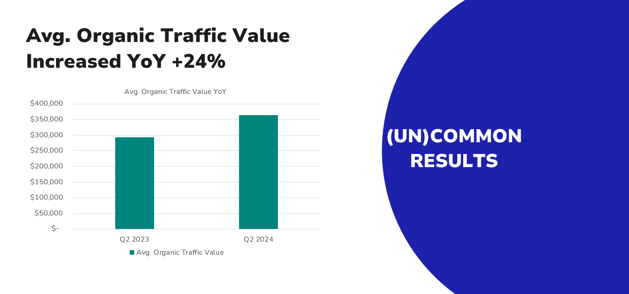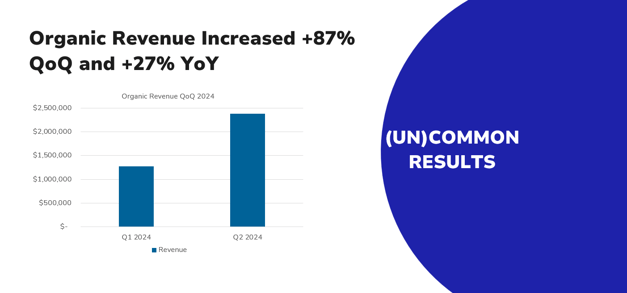Understanding the Importance of Analytics
When investing in digital marketing, analytics is a must for making informed decisions. For mid-market and large companies with marketing budgets often over $30K a month, understanding your data isn’t just nice to have—it’s essential.
Analytics give you a clear picture of customer behavior, how your campaigns are doing, and the overall health of your business. E-commerce brands can use this data to boost conversion rates and increase customer lifetime value, while lead generation companies can focus on improving lead quality. By digging into the numbers, you can spot trends, fine-tune your strategies, and make sure every dollar spent drives real results. Whether you're driving sales or leads, data-backed decisions help fuel growth.
The Role of Audience Insights in Analytics for Lead Gen and E-Commerce
Understanding your audience is key to driving success in both lead generation and e-commerce. Analytics provide invaluable insights into customer behaviors, preferences, and pain points, allowing businesses to create more targeted, effective marketing strategies.
For lead generation, audience insights help you identify the right prospects, craft personalized messages, and nurture relationships that move leads through the sales funnel. By understanding who your leads are and what they need, you can optimize your conversion rates and generate higher-quality leads that are more likely to become long-term customers.
In e-commerce, knowing your audience means being able to tailor your offers, product recommendations, and shopping experiences to boost engagement and sales. Analytics help you track customer journeys, segment audiences based on behavior, and refine your marketing strategies to improve conversion rates and customer lifetime value.
Whether you're focused on generating leads or increasing sales, leveraging audience insights through analytics is crucial to creating data-driven marketing strategies that deliver measurable results.
Best Practices for Building Effective Audiences in Analytics
Building the right audience is critical to the success of both lead generation and e-commerce campaigns. With analytics, you can refine your audience segments to ensure you're targeting the right people with the right message. Here are some best practices to keep in mind when creating audiences:
-
Segment by Behavior: Use analytics to track user behavior across your website or platforms. For lead generation, focus on actions like form submissions, downloads, or interaction with lead magnets. For e-commerce, segment based on browsing habits, product views, and purchase history.
-
Leverage Demographics and Firmographics: For lead gen, utilize firmographics like industry, company size, and job title to create targeted campaigns for decision-makers. In e-commerce, demographics like age, gender, and location are key to understanding who your buyers are and personalizing offers accordingly.
-
Use Retargeting: Create audiences based on users who have already interacted with your brand but haven’t completed the desired action. For lead gen, this might include visitors who viewed a key landing page but didn’t convert. In e-commerce, retarget users who abandoned their cart or viewed specific products without purchasing.
-
Lookalike Audiences: Both lead generation and e-commerce can benefit from lookalike audiences, where you target users similar to your existing leads or customers. These audiences help expand your reach while maintaining a high level of relevance.
-
Focus on Intent Signals: Identify users showing high intent, such as those who frequently return to your site or engage with specific content. For lead gen, track interactions with pricing or product information. In e-commerce, monitor users who revisit product pages or add items to their cart.
-
Refine Over Time: Audiences aren’t static. Continuously analyze performance data to refine your segments, improving targeting as you gather more insights about what drives conversions for both leads and sales.
By implementing these best practices, you can create highly targeted audiences that enhance your lead generation efforts and drive e-commerce conversions, all while maximizing the efficiency of your marketing spend.
Key Metrics Every E-Commerce & Lead Generation Marketer Should Track
To maximize the efficacy of your marketing efforts, it's crucial to focus on key performance indicators (KPIs) that align with your business objectives. For e-commerce and lead generation marketers, some of the pivotal metrics include:
1. Conversion Rate: This metric helps you understand the percentage of visitors who complete a desired action, such as making a purchase or filling out a form.
2. Customer Acquisition Cost (CAC): This indicates the total cost of acquiring a new customer, including all marketing and sales expenses.
3. Customer Lifetime Value (CLV): Understanding the long-term value of a customer can help in strategizing retention efforts and optimizing marketing spend.
4. Bounce Rate: High bounce rates may indicate issues with your landing pages or overall site experience.
5. Return on Investment (ROI): Evaluating the ROI of your campaigns ensures that your marketing dollars are being spent wisely and generating desired returns.
Tools and Technologies to Enhance Your Analytics
To effectively track and analyze these metrics, leveraging the right tools and technologies is essential. Here are some must-have tools:
1. Google Analytics: A powerful tool for tracking website traffic, user behavior, and conversion metrics.
2. HubSpot: An all-in-one marketing, sales, and service platform that provides comprehensive analytics and reporting capabilities.
3. Tableau: A data visualization tool that helps turn complex data into actionable insights through interactive dashboards.
4. SEMrush: Ideal for tracking SEO performance, competitive analysis, and keyword research.
5. CRM Systems (e.g., Salesforce): These systems help in managing customer interactions and providing detailed analytics on sales and marketing efforts.
The Impact of Analytics on SEO and Revenue for A Lead Gen & E-commerce Client
Many companies have successfully harnessed the power of analytics to drive their marketing success. For instance, one of our lead gen and ecommerce clients implemented analytics to track performance of priority pages and keywords to drive their SEO strategy.
By focusing their efforts on these pages, they managed to put together SEO strategies that increased avg. organic traffic value by +24% year-over-year and revenue +87% quarter-over-quarter!


Turning Data Into Action
Understanding your audience and leveraging analytics is not just an advantage—it’s a necessity. Whether you’re in lead generation or e-commerce, the ability to harness data for insights into customer behavior, campaign performance, and market trends can drive significant growth. By implementing best practices for audience creation, tracking key metrics, and using the right tools, you can optimize both your marketing efforts and your ROI.
From improving conversion rates to refining your SEO strategy, analytics provide the clarity and direction needed to make informed decisions that boost performance. As seen in the success story of using data to drive results, the impact is real—both in terms of revenue and long-term growth.
Now is the time to turn your data into action and elevate your marketing strategies with analytics-driven insights, contact us today.